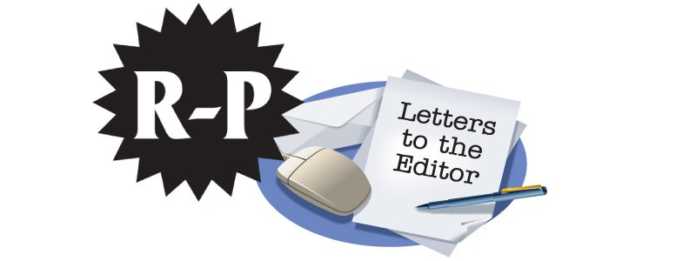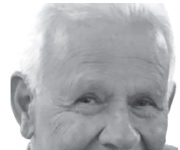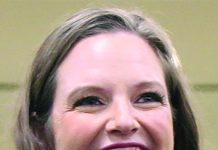The Pajaronian welcomes letters. Letters and columns may be dropped off or mailed to the Pajaronian, 21 Brennan St., Suite 18, Watsonville, CA 95076.
Letters and columns may also be sent via email to ne******@********an.com.
Letters should be less than 400 words, and columns are no more than 800 words.
All letters and columns must be signed and have an address and phone number for confirmation purposes. We reserve the right to edit and condense all submissions.
•••
Pedestrians continue to wander into the street
To the Editor,
Your article on pedestrian safety was spot-on! (Pajaronian, About Town, Week of Jan. 14). I drive through town multiple days a week and am always amazed at some pedestrian just wandering out into the street without even looking around.
Since the city recently upgraded the Main Street intersections with fancy pedestrian-friendly crossings (state funded?), the main offenders seem to be on Rodriguez Street. Pick any block … any time of day … I am constantly wishing there was a police vehicle nearby. And often it is adults with multiple children in tow. Often it is some wheeled cart, bike, carriage, walker, just wandering out.
Karen Schulz
Royal Oaks
•••
Commendation for SCCRTC
To the Editor,
I wish to commend the Santa Cruz County Regional Transportation Commission board members who voted in favor of implementing the Phase Two contract with Progressive Rail (St. Paul & Pacific) and approving the United Corridor Study.
Preserving the historic, scenic Santa Cruz Branch rail line for future freight and passenger use in Santa Cruz County will pay dividends in reducing traffic congestion, mitigating pollution, increasing business and providing local and inter-city rail transportation to other areas. For passengers who will make connections in Pajaro, this is something not seen since the demise of Southern Pacific Railroad’s famous Del Monte passenger train in 1971.
Keeping the rail and building a trail will serve to please and appease to the benefit of all.
Gary V. Plomp
Gilroy
•••
Homeless and housing
To the Editor,
What to do with homeless people? It is more complex than 50 years ago. Some people with jobs cannot afford local housing.
Most people would like to do something. Here are several approaches:
• Increase the number of mobile home parks — this is affordable housing
• Provide parking areas for people living out of their RV’s, motor homes and cars
• Provide dormitories for the less fortunate
• Everyone participating is expected to maintain their area and to give back through different acts
• Those not following simple codes of conduct will be removed from these three options
The objective is to provide a hand up, not a hand out for residents of our area. For those who do not want to make use of these options, we will not tolerate camping out and they should be removed.
Bill Beecher
Aptos
•••
What’s it going to take to repair crumbling roads?
To the Editor,
I preface this by saying this money is probably coming out of a different pocket.
But, driving along Pioneer and Varni roads it is really hard to understand how these roads, traveled by hundreds of us each day, can be in such a state of disrepair while new sidewalks, maybe used by a handful of people, are installed along the north side of Airport Boulevard.
The west end of the north sidewalk ends at a freeway on-ramp! Last I checked pedestrians are not allowed on the freeway.
I’m wondering what it’s going to take for my fuel tax dollars to be used to repair the roads that I and hundreds of other people drive each day.
Gary Peixoto
Watsonville
•••
Fatal collisions shocking and heartbreaking
To the Editor,
I hope the Watsonville City Council’s plan to improve pedestrian and traffic safety will do a lot of good to impact this current alarming situation.
From 2015 to 2018, there have been hundreds of injury collisions, and sadly, there have been 13 fatalities in Watsonville. It is both shocking and heartbreaking. Drivers and pedestrians seriously need to slow down, show some kindness and be willing to yield.
Anyway, golden sunshine, love and peace to all.
Mike Bobeda
Watsonville
•••
February is American Heart Month
To the Editor,
February is American Heart Month and one way to show your love to someone you care about is to learn about heart disease and the risk factors associated with it.
In the United States, cardiovascular disease and stroke is the leading cause of death resulting in one in every three deaths. This is equal to 2,200 deaths per day. The most common type of heart disease is coronary artery disease, which can lead to a heart attack.
The risk of getting heart disease is increased by your lifestyle, age and family history. According to the Centers for Disease Control and Prevention (CDC), about half of all Americans have at least one of the three risk factors for heart disease: high blood pressure, high cholesterol and/or smoking. Risk factors for heart disease that cannot be controlled are your age and family history.
The signs and symptoms of a heart attack include chest pain or discomfort; upper body pain or discomfort in the arms, back, neck, jaw or upper stomach; shortness of breath; or nausea, lightheadedness or cold sweats. If you or someone you know has one of these symptoms, it could potentially be a heart attack and emergency treatment should be sought out immediately.
While previously men were thought to be at higher risk of heart disease, this is no longer true. Ninety percent of women have one or more risk factors for developing heart disease, yet only one in five women believe that heart disease is among their greatest health threats. Heart disease and stroke account for 31.7 percent of all female deaths in California, according to the CDC, and a 2010 CDC study found that, on average, almost 100 women die from heart disease and stroke in California each day.
You can take action to reduce heart disease by changing your lifestyle and diet, maintaining a healthy weight, and lowering your cholesterol and blood pressure. Taking steps to address your health is important as we acknowledge American Heart Month. Do it for yourself and your loved ones and get a health check-up.
Bill Monning
California State Senator









